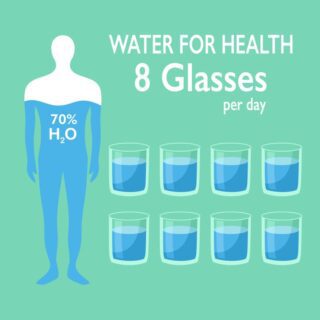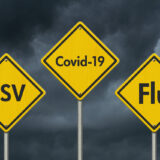What Are Symptoms of Norovirus and How to Manage It?

What is the Norovirus?
Norovirus is a highly contagious virus that causes gastroenteritis which is inflammation of the stomach and intestines. Although norovirus is commonly referred to as the “stomach flu,” it is not related to the influenza virus which causes respiratory symptoms. Norovirus is spread from contaminated food or water, contaminated surfaces and close contact with an infected person. Living in close quarters such as a preschool, nursing homes, hotels and cruise ships are a risk factor for norovirus infection.

Symptoms
Symptoms start about 12 to 4 hours after exposure and last 1 to 3 days. Most people are able to recover without treatment. The main symptoms are diarrhea, stomach pain, nausea and vomiting. Additional symptoms can include fatigue, headache, low-grade fever and muscle pain. Adults may experience more diarrhea whereas children may experience more vomiting. However, some people may be infected but show no signs or symptoms. The virus can be shed in the stools for weeks up to months after recovery. An asymptomatic person can also be contagious and spread the virus.
Younger children, older adults and people overall with weaker immune systems are at risk for severe dehydration and complications. Signs of dehydration include fatigue, dry mouth, dizziness, decreased urine output or dark-colored urine. Dehydration in children also includes crying with fewer or no tears and increased irritability. Severe dehydration or inability to keep nutrients in your body requires medical attention and intravenous fluids.
Management
There is no cure for norovirus so treatment aims at relieving symptoms and preventing complications. It is recommended to drink fluids with electrolytes, rest and eat soft, bland foods. Easy-to-digest foods include inflammation in the stomach and small intestines will make it difficult to eat or drink. Taking smaller bites or sips slowly can help. Medications can be used to help with diarrhea and nausea symptoms.
Summary:
- It’s a contagious virus causing inflammation of the stomach and intestines (gastroenteritis).
- Spread through contaminated food/water, surfaces, and close contact.
- Symptoms: sudden onset of diarrhea, vomiting, nausea, stomach pain (lasting 1-3 days).
- Less common symptoms: fatigue, headache, low fever, muscle pain.
- Children and older adults with weak immunity are at risk for dehydration.
- No cure, treatment focuses on symptom relief and preventing dehydration.
- Drink fluids with electrolytes, rest, eat bland foods in small amounts.
- Medical attention needed for severe dehydration or inability to eat/drink.

This article reviewed by Dr. Jim Liu, MD and Ms. Deb Dooley, APRN.
There’s nothing more important than our good health – that’s our principal capital asset.
#medical #telehealth #umedoc










